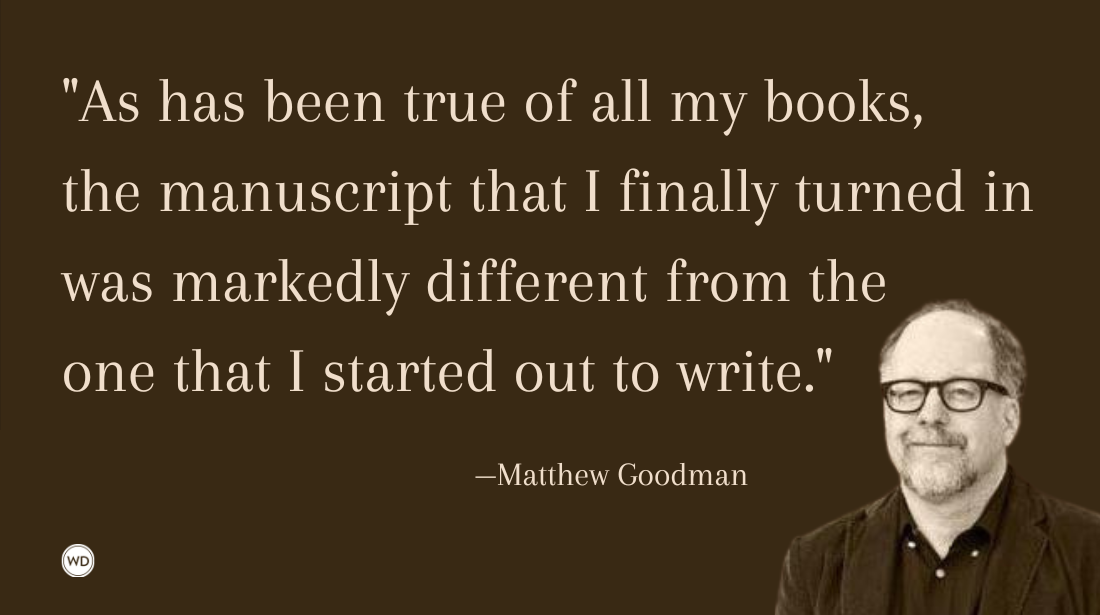12 Most Popular Grammar Questions and Answers on WritersDigest.com
Today is National Grammar Day, and I think the best way to celebrate is to share the 12 most popular grammar questions and answers on WritersDigest.com. (Thanks to former editor…
Today is National Grammar Day, and I think the best way to celebrate is to share the 12 most popular grammar questions and answers on WritersDigest.com. (Thanks to former editor Brian A. Klems for creating all these original posts!)
So let's get grammatically correct! (Please let me know where my grammar has strayed in this post.)
*****
Avoid the Most Common Mistakes!
Nobody's perfect, but there are some mistakes that annoy editors more than others. Learn the most common mistakes writers make and how to avoid them with Top Ten Errors Writers Make That Editors Hate.
This tutorial shares the most common grammar, spelling, and punctuation errors; the most typical inconsistencies; the most frequent stylistic errors; ways to spot and avoid hangnail writing; ways to support natural plot development; and so much more!
*****
12 Most Popular Grammar Questions and Answers on WritersDigest.com
Here they are. I've condensed the information below, but you can get more insight by clicking on each link.
- Which vs. That. Learn how using which and that can both make sense but still change the meaning of the same sentence.
- Lay vs. Lie (vs. Laid). I lay down books before I lie down to rest. Also, lie becomes laid in the past tense while lie becomes lay...and don't forget lain.
- Do you underline book titles? The answer is, of course, yes--unless your house style claims otherwise.
- When do I spell out numbers? The most common rule is to spell out numbers nine or lower (less? fewer?) and use numerals for 10 and up. Find exceptions by clicking on the link.
- Ensure vs. Insure. Some think these words are interchangeable, but insure is usually related to financial terms, while ensure is usually means "to make certain."
- Into vs. In To. There is difference in running into a person and running in to talk to a person. If you don't get it, try clicking in to see some examples.
- The Rule is Not "A" Before Consonants and "An" Before Vowels. It's not about the letter; it's about the sound the letter makes: so "a" before "how" but "an" before "hour."
- Is It People or Persons? Most people use people, but persons is totally appropriate for a smaller group of people (or persons).
- Affect vs. Effect. Affect is generally used as a verb, and effect is usually a noun. I like Brian's mnemonic device: The action is affect, the end result is effect.
- How Many Spaces After a Period? When I started typing, the rule was two. But computers have changed the norm to one. So quit it with the two spaces, unless you're using a typewriter.
- Snuck vs. Sneaked. The quick answer is that sneaked is the proper way to sneak in somewhere in the past tense. But, you know, snuck is sneaking its way into common usage. Debate below.
- Hone vs. Home. Hone is used "to sharpen or make more acute," while home is used in more of a directional or targeting sense. So hone those skills of homing in on the bullseye.
*****
Robert Lee Brewer is Senior Editor of the Writer’s Digest Writing Community, specifically working on the Market Books, WritersMarket.com, and maintaining the Poetic Asides blog. Follow him on Twitter @RobertLeeBrewer. And be sure to follow his friend and former WritersDigest.com editor Brian A. Klems @BrianKlems.
Robert Lee Brewer is Senior Editor of Writer's Digest, which includes managing the content on WritersDigest.com and programming virtual conferences. He's the author of 40 Plot Twist Prompts for Writers: Writing Ideas for Bending Stories in New Directions, The Complete Guide of Poetic Forms: 100+ Poetic Form Definitions and Examples for Poets, Poem-a-Day: 365 Poetry Writing Prompts for a Year of Poeming, and more. Also, he's the editor of Writer's Market, Poet's Market, and Guide to Literary Agents. Follow him on Twitter @robertleebrewer.








